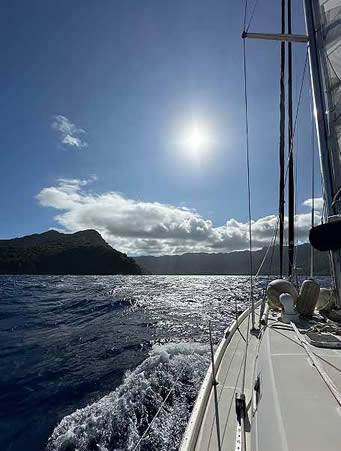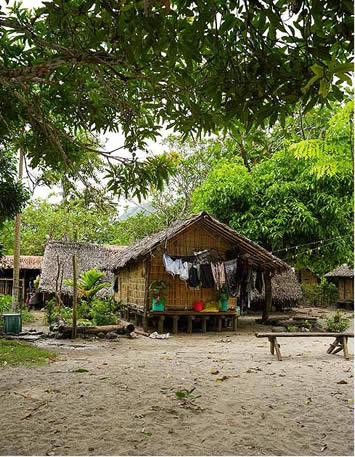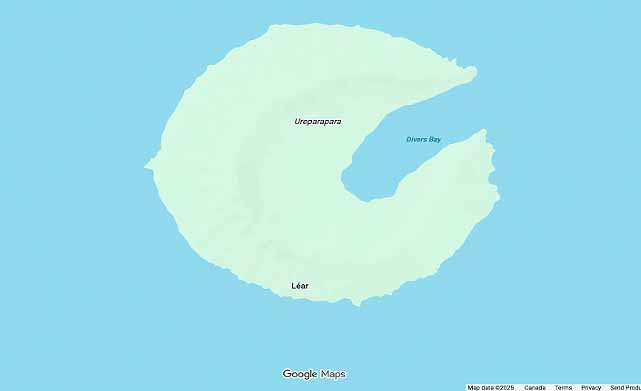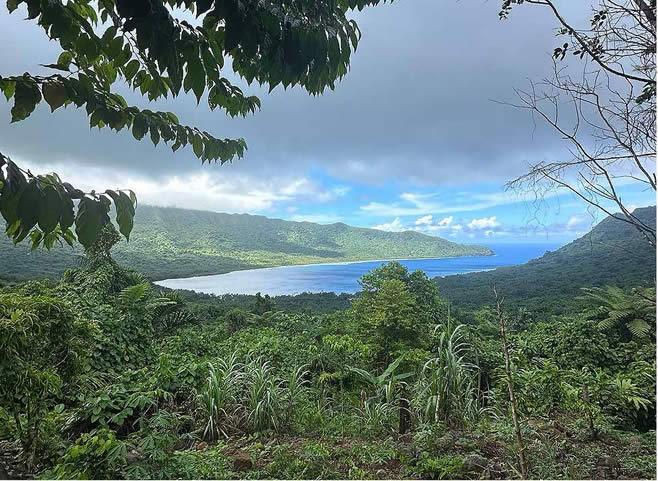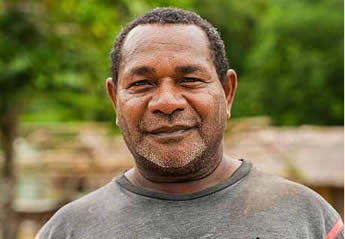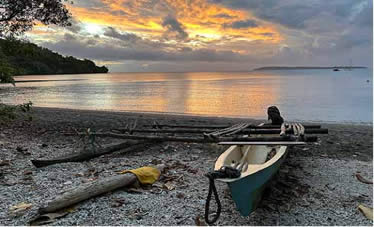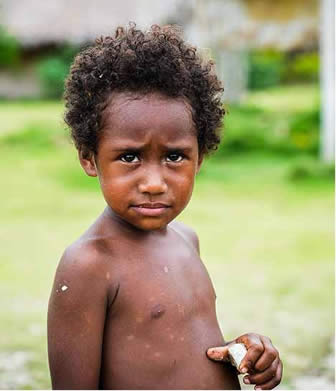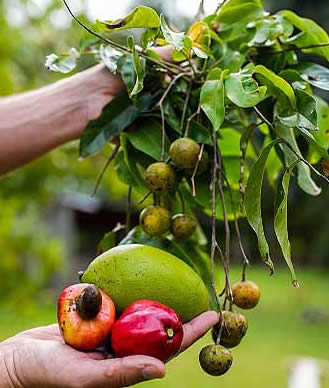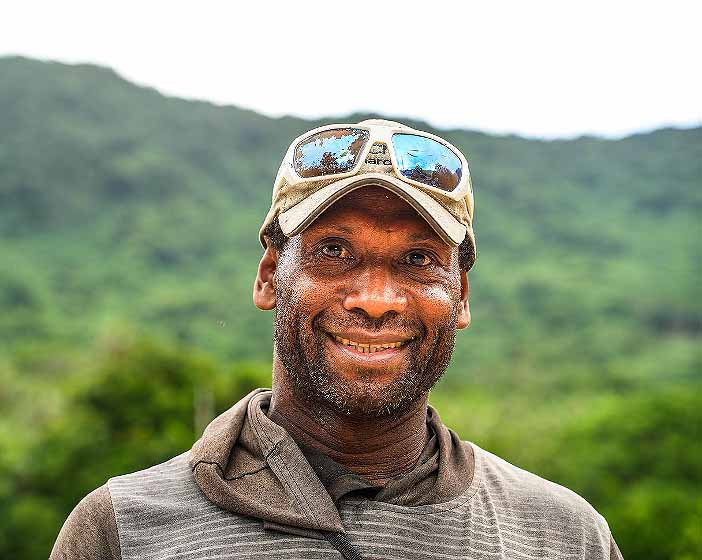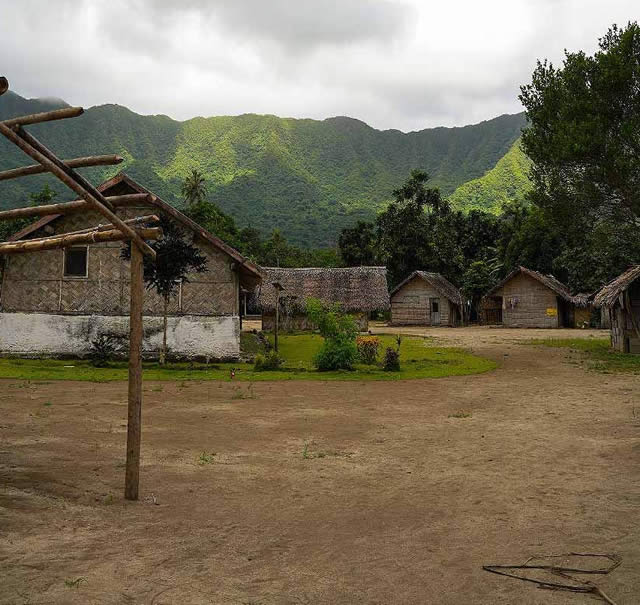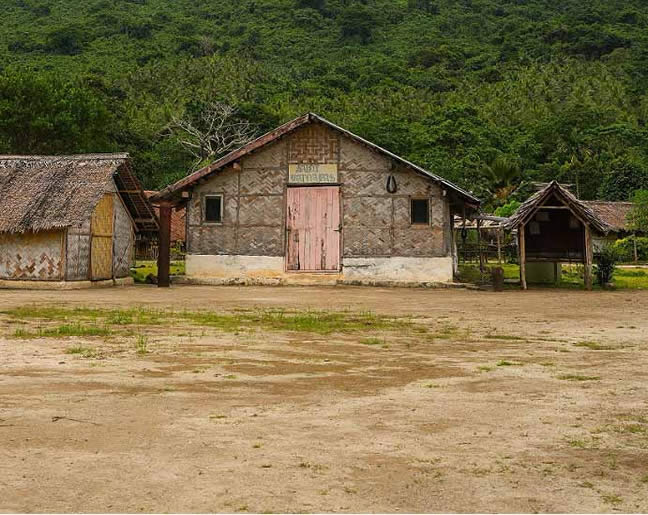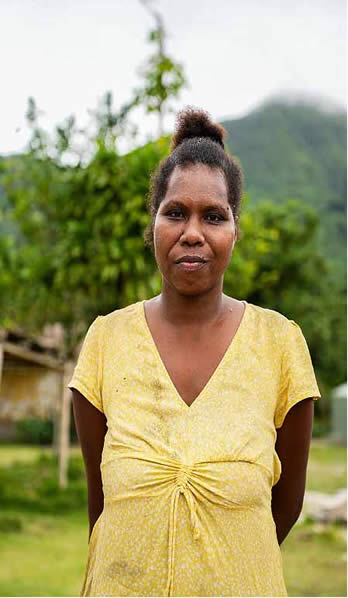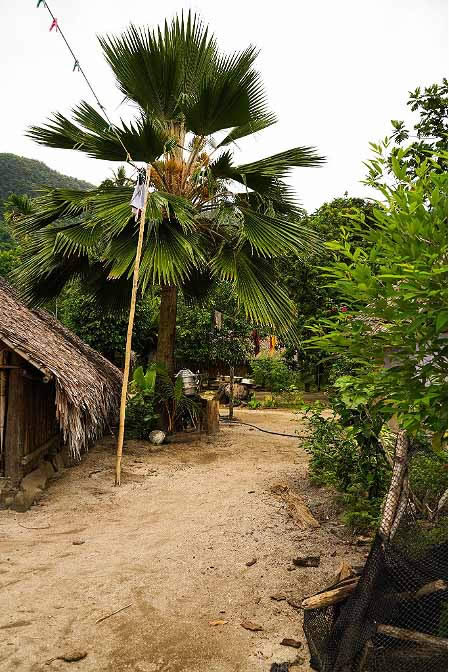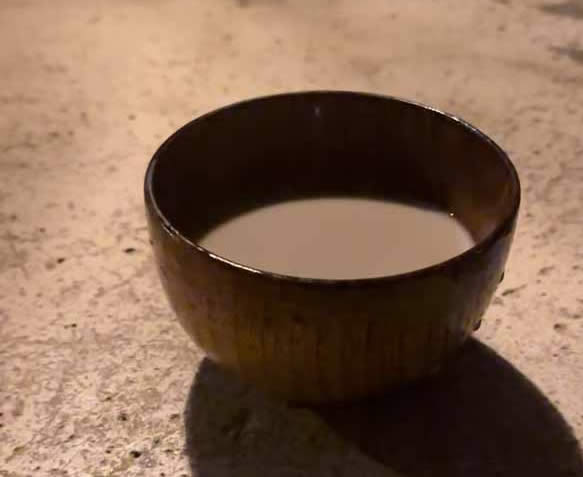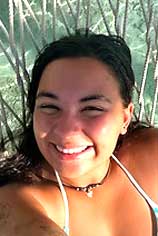 |
|
UNSPOILED UREPARAPARA An Island Where Desperation Precedes Morals |
|||
Story and photographs by Katrina Chen |
In the middle of the South Pacific Ocean, there is a crescent-shaped island named Ureparapara which translates as "island of slopes." Acknowledged by the Ni-Vanuatu people as the most remote island in their country, the island's name reflects ancient geological activity. The island was once a volcano, but an eruption hollowed out the center and seawater seeped its way through. Now in its place exists an isolated island, excitedly alive with nature and people in their rawest forms.
I had been living on a sailboat for 2 months at this point, traversing the island chain of Vanuatu. It had already become my favourite country because of how untouched it was. The majority of people I told about Vanuatu had no idea where it was or that it even existed. One of my first days in the country, a local lady told me about Ureparapara. She had said that it would be one of the most remote places we would ever visit, and even locals don’t go there because of its remote location. After hearing this and seeing the unique shape of it on Google Maps, it was decided that we needed to make the trip.
The sail was rough, eight hours of being brutally flung around the deck by three-meter waves. My ribs felt crushed after one too many wall brush-ups. So when we entered the mouth of the island and the waves dissipated, sweet relief was mine. Only then did my jaw hit the deck at the sight in front of me. We were surrounded by walls of lush green palm trees and a shore lined by white sand beaches. I felt as though I’d been transported into a new world. A strong wind funnelled into the bay, which we welcomed gladly after sailing in 38C (100F) heat all day. Clouds gathered at the summit of the island’s walls, their height a clear indicator that this had once been a volcano. At first, I didn’t see any civilization; the flora swallowed it up. However, as we approached the shore looking to anchor, civilization came to meet us.
A man radiating power was headed to us in a dugout canoe. He wore tattered clothes but a warm smile. He introduced himself as Chief Frederick, one of the twenty island chiefs who is cherished by its 200 natives.
He directed us to an anchorage with calmer waters, and paddled beside us the whole time. We chatted with him about our journey around Vanuatu thus far, and he left us to anchor in for the night with an invite for a tour of his village tomorrow. No more than five minutes after heading back to his chiefly duties, a wave of dugout canoes came to us. Filled with men, women, and children as young as two, they greeted us with intense curiosity and little English. They surveyed our boat and offered us fruits, then paddled back to shore.
Later that night, another man who emitted a sense of authority came out to greet us. We could tell he was another chief as soon as the paddle started. He was a lively man with a contagious laugh and gentle eyes. He climbed aboard our boat with purpose and laid out for us the extent of the remoteness the island lived in.
Their supplies were dismal at the moment. They relied on the Taiwanese government to send ships every month with supplies, but they had gone six months with no supply ship now. They were able to live off the land with fruit, veggies, and the odd chicken, but the other necessities of survival were out of reach. The most worrisome part of this was the lack of fuel. This outlying island of Ureparapara was an eight hour sail for us from the nearest island, but our boat was quadruple the size of their single motorboat, meaning it took almost a day for them to get to the next biggest island. But if there was a medical emergency, this was the only way to get help. The trepidation was evident in his urgent tone. To add to the desperation was the fact that there was no cell tower on the island. This left them two options for making outside contact: take a motorboat in the direction of the next island and pray to get a bar of service two hours out in the middle of the ocean, or climb to the highest point of the island, roughly a four hour hike, to maybe get a bar depending on whether there were any clouds between them and a cell tower. I decided at that moment I wanted to do the hike with a local to really put into perspective how privileged I had been with phone service.
First things first, we had the tour. Despite the lack of supplies, the village was bustling with projects and purpose. People were building a new church and store, and women armed with homemade sickles were clearing away the weeds in a field to make room for harvested crops.
Soon, we were encircled by 15 kids, running around us with juvenile energy, excited to meet the outsiders. They grabbed our hands, dragging us this way and that, and it felt like we had met the entire island in a span of 20 minutes. However the most meaningful encounter I had was with a local woman coddling a newborn. I began chatting with her, and her perfect English piqued my interest as the island didn’t have access to many English materials. As we sat in pulsing sun briefly cooled by valley breezes, she told me a love story. Once upon a time (a year ago), a German man on a boat ventured to this remote island. Upon immersing himself in the village, he fell in love with a local girl and they got married. He abandoned his previous life to start a new one in this newfound minimalist world, and they had a baby. But he would not be someone I could meet that day, as even on their isolated land, they weren’t safe from heartbreak. A month earlier, after falling ill, he had urgently flown back to Germany to get treatment for throat cancer. She had to stay on the island because she had no means to leave. She solemnly explained how she had no idea whether her love was dead or alive, and maybe never would know. This story hit a spot in my heart of deep sympathy, and a slight but gnawing inkling of guilt. I would sail out of here in a day, reconnect with my loved ones at home, and share tales about the beauty of this faraway land. She would remain hopelessly in the dark about her husband’s life. This was a story I fought with for a while because there was nothing I could do at that moment to help her, not that she needed my help, but I would have given anything to get her an update. I still think about her often and hope her world was relit with love once again and they are now happily raising their boy.
After the tour, Chief John took our boat mate out fishing and returned at dark with Kava. Kava is a drink made from a plant that numbs your body and gives a feeling of intoxication. It was once known as a respectful offering to the chiefs, but now it is also drunk to celebrate friendships. The kava loosened Chief John’s lips, and he opened up about some struggles he had been having recently on the island, stemming from the isolation they faced.
Both chiefs had, in their own tactics, asked us about giving them something for the island or a donation to the school there. We had been prepared, as it was a common occurrence to offer gifts to villages near anchorages for letting us stay, but all we had prepared were soaps and clothing. Chief John enlightened us on the recent disgruntlements he had with Chief Frederick; he had been stealing materials and money, given towards the island as a whole, for himself. Boats were a big source of support for the island, their passengers often giving things like rice, sugar, fuel, and even money to sustain the island in its times of need. But these supplies would fall into Chief Frederick's hands and then go missing, so said Chief John. It was his word against the other’s, so not knowing what to believe, we gathered them both and split our supplies between them, hoping that morals would prevail and it would benefit not just these two men, but everyone. We sailed away the next morning from this new world into which we had been briefly welcomed and floated onto our next adventure. But this experience still sits with me because it was the most raw one I've had the opportunity to know. As people have asked me about my stories from my travels, this one prevails as the most important to share because it serves as a beautiful reminder to appreciate the dichotomy of ways we can live. I make it a point to remember Ureparapara, and I promised myself to one day return. Upon my return, I hope to find a harmonic society stocked with supplies but still relying on the foundation of community and the simplistic happiness I had been met with once upon a time. About the Author
|
